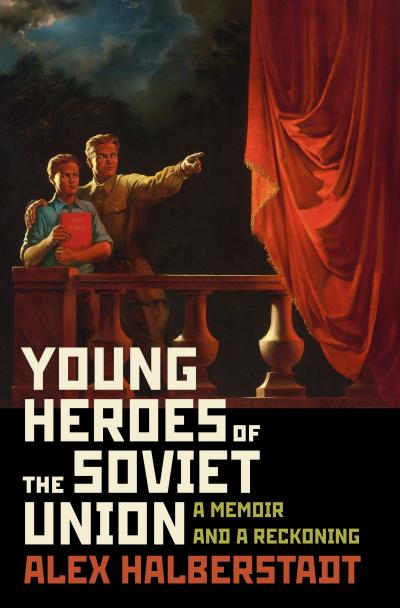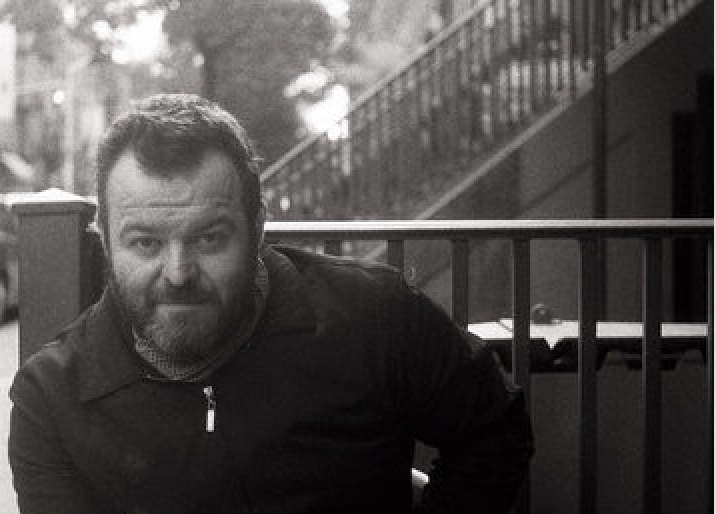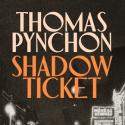Since the collapse of the Soviet Union, there has been a collective examination of its past, with Nobel Prize-winner Svetlana Alexievich at the helm. Young Heroes of the Soviet Union looks back at the USSR through the lens of the personal, much like recent memoirs East West Street and The Hare with Amber Eyes. Like these accounts, Halberstadt’s book focuses, at least in part, on the tragic history of the Jews in Europe. It works well in that Halberstadt relates the story to himself throughout – not so frequently as to feel heavy-handed, but often enough so as not to lose himself as the unifying thread.
 Beginning with his father and paternal grandfather, Halberstadt confronts the reader head on with the darkness of the Soviet Union. We all want to believe that our family was on the side of good, but Halberstadt's grandfather, Vassily, was not only Stalin's bodyguard, but also one of the flunkies of the heinous Lavrenty Beria. In a particularly upsetting episode, Vassily witnesses the effective kidnapping of a young woman, aware of her rape and murder offstage – something that Beria was infamous for. The book then moves on to the story of Halberstadt's maternal relatives, Jews living in Lithuania, a promised land before it was transformed by Nazi occupation. A nation that once offered tolerance became the site for some of the worst excesses of World War Two, during which all but 5% of the Jewish population was murdered. When Halberstadt visits, he notes that the antisemitic attitudes of the past are still present. This was confirmed recently, when Lithuania declared, in January of this year, that no Lithuanians participated in the Holocaust.
Beginning with his father and paternal grandfather, Halberstadt confronts the reader head on with the darkness of the Soviet Union. We all want to believe that our family was on the side of good, but Halberstadt's grandfather, Vassily, was not only Stalin's bodyguard, but also one of the flunkies of the heinous Lavrenty Beria. In a particularly upsetting episode, Vassily witnesses the effective kidnapping of a young woman, aware of her rape and murder offstage – something that Beria was infamous for. The book then moves on to the story of Halberstadt's maternal relatives, Jews living in Lithuania, a promised land before it was transformed by Nazi occupation. A nation that once offered tolerance became the site for some of the worst excesses of World War Two, during which all but 5% of the Jewish population was murdered. When Halberstadt visits, he notes that the antisemitic attitudes of the past are still present. This was confirmed recently, when Lithuania declared, in January of this year, that no Lithuanians participated in the Holocaust.
Following his family’s past, Halberstadt describes his own, with an early upbringing in Moscow, an escape from the USSR, and then a new life in New York. Part of the narrative is devoted to Halberstadt’s growing awareness of his sexuality, though this is not the focus of the book, more an aspect. It is only one of the adjustments that he has had to make throughout his life, and Halberstadt is very good at describing just how odd it was to leave the USSR for the USA, at a time when the attitudes and social mores of both states could not be more polarised.
With its diverse stories, Young Heroes of the Soviet Union is excellent as a record of how a single family can be tied up in so many strands of history. Halberstadt begins the book with a study on inherited trauma, and tracks this throughout, starting and ending with a dream of his childhood in Stepanovskoye. He writes: “It was unnerving to imagine that the past could be living through us without our consent or knowledge.” Again, Halberstadt has a surprising lightness of touch (given the weighty subject matter), allowing him to deftly explore the impact of his family’s past on the present. It is a very good way of chronicling the individual alongside the behemoth of twentieth-century history: a fascinating and impactful read.
- Young Heroes of the Soviet Union by Alex Halberstadt (Jonathan Cape, £14.99)
- Read more book reviews on theartsdesk















Add comment